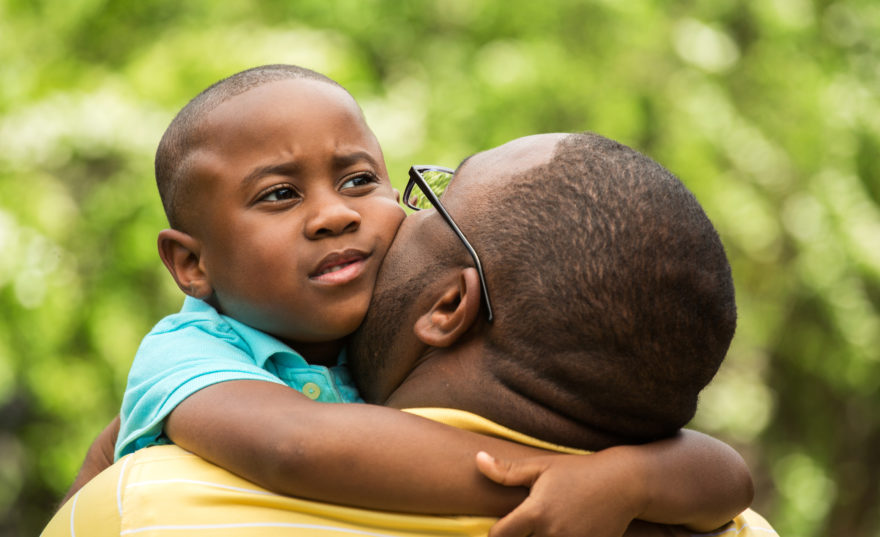This is a summary of a chapter in the book Family Therapy – New Intervention Programs And Researches. The chapter introduces children of parents with mental illness (COPMI) as a group and explains the risk factors and the impact of parental mental illness on children. It offers examples of approaches that can help children in this situation, using the KidsTime Workshop model, and explains how a combination of family therapy and systemic therapy influences, together with drama, can create an effective multi-family therapy intervention.
Children of parents with a mental illness face childhoods that can be full of challenging experiences, threatening their quality of life, development and long-term outcomes. However, these children are not an officially recognised group in the UK, and data and statistics are not gathered about them. Whilst UK policies recognise the needs of young carers, they do not address the specific challenges experienced by children whose parents have a mental illness. This is not the case in other countries; in Australia, these children are officially known as COPMI (Children of Parents with Mental Illness), and as ‘Young Relatives’ in most Nordic countries. Children of parents with a mental illness remain a hidden group in the UK, and many are reluctant to identify as a young carer, due to the shame and stigma often associated with mental illness, making them vulnerable and at risk of neglect.
The UK Children’s Commissioner Vulnerability Report (2018) found that in an average classroom, eight children have a parent with mental health problems – this is the equivalent of 25% of the UK school population [1]. In 2018, Our Time, a UK charity which advocates for, and offers support to this group, did an analysis of existing data (supported by a team from Ernst & Young) which found that in excess of 3.4 million children and young people in the UK are currently living with a parent with a mental illness [2]. Further evidence indicates that, without support, 70% of these children are likely to go on to develop mental health problems themselves. With two ill parents, there is a 30-50% chance of the child developing a serious mental illness later in life [3]. A WHO review stated: “Children with a parent who has a mental illness or substance use disorder are placed at high risk of experiencing family discord and psychiatric problems. The intergenerational transfer of mental disorder is the result of interactions between genetic, biological and social risk factors occurring as early as pregnancy and infancy”.
In Germany, where Our Time’s partners, the “KidsTime Netzwerk”, use the KidsTime Workshop model to support children and families; research has identified 3.8 million children affected by parental mental illness [4].
Summary of Key Facts and Statistics
- In excess of 3 million children in the UK live with a parent(s) with a mental health issue.
- On average 8 children in a typical classroom will be in this situation.
- This is 20-25% of the school population.
- Children in this situation are 70% more likely to develop a mental health condition.
- Parental mental illness is one of the 10 Adverse Childhood Experiences (ACEs) that has a life-time impact on both physical and mental health.
- Parental Mental Illness (PMI) is a root cause of many other ACEs.
- WHO identifies PMI as one of the most important public health issues of our generation.
- Intervention late after the onset of an ACE is less likely to be effective. Rising thresholds for acute support are exacerbated by significant reductions in early intervention spending by local authorities.
- By focusing on clinically diagnosable mental illness, Child and Adolescent Mental Health Service (CAMHS) interventions come too late to address ACEs.
- In 2018, the Children’s Commissioner reported that despite the new provisions in law, 4 in 5 young carers were not being identified.
Research into adverse childhood experiences, known as ACEs [5] identifies parental mental illness as one of the ten most powerful sources of toxic stress in young people. The presence of mental illness in a parent is known to negatively impact on a child’s cognitive and language development, educational achievement, and social, emotional and behavioural development [1, 6, 7, 8]. It can lead to anxiety and guilt arising from a sense of personal responsibility. Where there is severe mental illness in a parent, and no second parent who is well, it can lead to neglect or abuse. These children are also at greater risk of bullying, a lower standard of living, and financial hardship.
This article was a summary of: Chapter: KidsTime Workshops: Strengthening resilience of children of parents with a mental illness, by Klaus Henner Spierling, Kirsty Tahta–Wraith, Helena Kulikowska and Dympna Cunnane, in ‘Family Therapy – New Intervention Programs And Researches’ ISBN 978-1-78984-302-6.
References
[1] Children’s Commissioner Vulnerability Report. 2018
[2] Ernst and Young. Sizing the Problem—Analysis. Our Time
[3] Rubovits PC. Project CHILD: An intervention programme for psychotic mothers and their children. 1996
[4] Hetherington R, Baistow K, Katz I, Trowell J. The Welfare of Children with mentally ill parents: Learning from Inter-country comparisons WHO paper. 2001
[5] Felitti Vincent J, Robert A, et al. Relationship of childhood abuse and household dysfunction to many of the leading causes of death in adults. The adverse childhood experiences (ACE) study. American Journal of Preventative Medicine. 1998; 14 (4): 245-258
[6] Mattejat F, Remschmidt H. Kinder psychisch kranker Eltern. Deutsches Ärzteblatt. 2008;105 (23): 413-418
[7] Cooklin A. Promoting children’s resilience to parental mental illness: Engaging the child’s thinking. Advances in Psychiatric Treatment. May 2013;19 (3): 229-240
[8] Welsh Adverse Childhood Experiences (ACE) study. Public Health Wales. Centre for Public Health, Liverpool John Moores University; 2015
